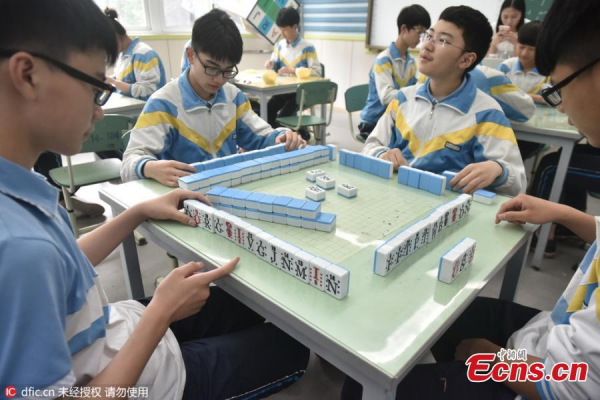
Is English learning a long, boring and tedious process? Most students across the country might say yes. But something has changed in a middle school in Chengdu, Sichuan province, where students learn English in entertaining ways.
Students play mahjong, poker and weiqi (or Go) on Tuesday in classrooms at the Jitou Middle School in the southwestern city of Chengdu. Are they gambling? No, they are learning English, the West China Metropolis Daily reported.
Different from normal mahjong, poker cards and weiqi pieces, these in students' hands are in English alphabets.
How to win the games?
Students have to form English words with the letters they get and then write down on their notebooks. A student wins a game after they form the most English words, writing sentences and telling a story by using the words.
These special majong pieces, poker cards and weiqi pieces are created by Tian Jingyun, the school principal. He said these games help students to recite English words and improve their associative memories.
These students would soon take their final tests, and playing these games would also help them relieve pressure, he added.
Though the special majong pieces, poker cards and weiqi pieces have all 26 English letters, the quantities of each letter are different.
Tian said that he has calculated the frequency of letters appearing in words, and then set the quantities of each letters differently, such as having eight mahjong pieces of I but only two B.


















































